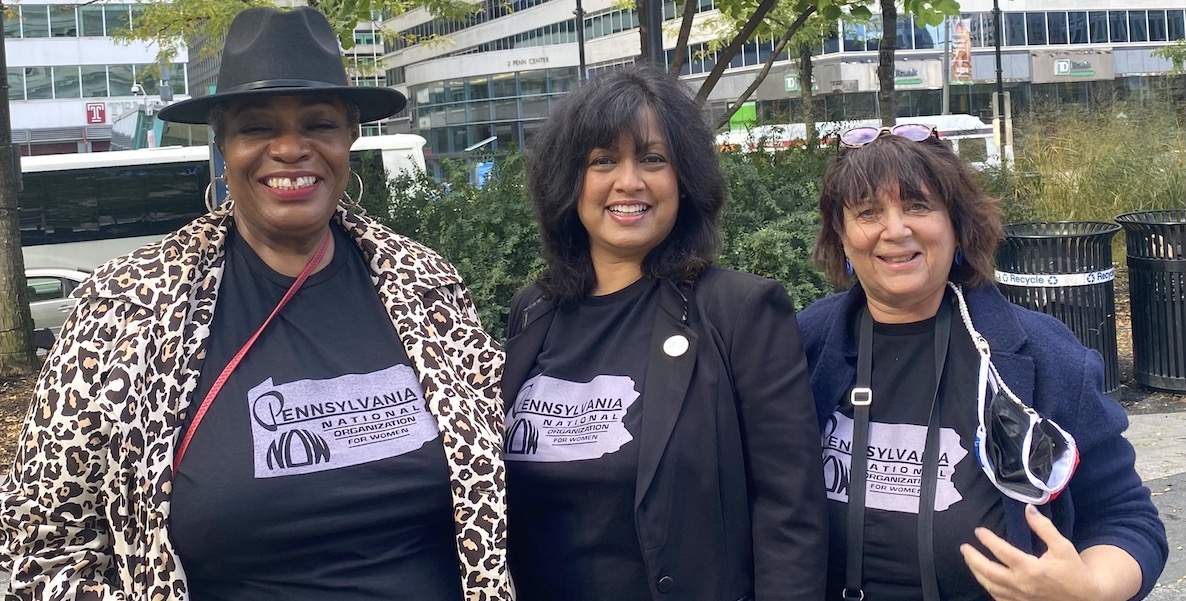Nina Ahmad describes herself as an optimist — which wouldn’t be noteworthy, until you consider her background.
She was just a child when war broke out in her native Bangladesh, where 3 million people were killed and more than 250,000 women and girls were raped. She was only 21 when she came to the U.S., alone, to pursue an undergraduate degree in Michigan. And she has rigorous training — a PhD from Penn, to be precise — not in the humanities or psychology but in a decidedly quantitative field: chemistry.
In Philly, where she moved in 1983, Ahmad volunteered to look after the children of single parents who were receiving services at a Philly-based nonprofit, and came to believe that if all children in Philadelphia had the support they needed, their futures would be limitless.
That framework — recognizing the toll of trauma; implementing interventions like mental health support and the availability of trusted adults; rigorously evaluating programs and constantly iterating upon them — has molded Ahmad into a City Council candidate unlike any before her. Ahmad is running for City Council-at-Large as the only scientist in the field — something she says will inform how she governs.
“My politics were framed by the sacrifice of 3 million people. I feel that I owe the world something. This is my debt of gratitude,” she says. “Today, I still see barriers persisting that are grounded in devaluing people. I know what it means to be devalued. And we must be surgical in removing systems of oppression.”
Ahmad, an East Mt. Airy resident who has run in two statewide races and is currently President of the Pennsylvania National Organization for Women and co-owner of a small business, is no stranger to local government. Her combination of caring and calculus underscored her role as a deputy mayor in the Kenney administration, where she was on the team that launched the Office of Public Engagement.
Take, for example, a project she oversaw with the Health Department, which tasked teens from Strawberry Mansion with evaluating marketing campaigns designed to lure them to smoke cigarettes. Ahmad insisted the Health Department pay teens a fair wage for their work; that the youth be supported by a familiar and nurturing adult; that each student leave the program with valuable, transferable skills, like using Excel and creating presentations and communicating with City Council.
At the conclusion of the project, the teens shared their findings — that Big Tobacco was trying to lure them to smoke mentholated cigarettes, using deceitful messaging to convey that such products weren’t as harmful as other products. (The topic is now a hot-button issue in several states that are trying to roll out menthols-specific bans.)
Or consider Ahmad’s insight into our city’s myriad gun violence programs. She believes that, rather than scrap some of the underperforming ones altogether, it’s worth rigorously reviewing and improving them — iterating, as any good scientist or product developer might do. Focused deterrence as it was practiced in Philly showed promise, for example — but she says it needed elements like cognitive therapy, and that its job placement and training programs were lacking (specifically, job placements should be longer than six months and empower people with marketable skill sets).
She is adamant about providing widespread, data-backed mental health services throughout the city too. “We have a traumatized city. We have traumatized children. To not have housing is deeply traumatizing; to not know where your meal is coming from is deeply traumatizing; to have to go into a school that is literally poisoning you is deeply traumatizing,” she says. “And if we don’t address trauma as part of our programs, whatever we are doing to address violence or changing our levels of poverty, all of those things, are not going to work.”
Based on feedback she’s received from youth, like those in attendance at last week’s forum held by Philly BOLT and others, she believes policymakers must be exceedingly granular in their approach to solving the problem of violence in schools. Who looked at who in a “wrong” way? How did that make someone feel? Why did it make them feel that way? What tools is that young person lacking that they’d resort to violence? How did the school react in the moment and thereafter? What changes were made as a result? And so on.
“You can be a good city with lots of resources and take care of the least amongst us and demand accountability and transparency. You can do all of it,” she says.
The Citizen is writing about Philadelphia City Council candidates who are doing what for a long time was the unthinkable: Bucking the system by running for office with ideas and experience — not just by dint of being the usual suspects. Because if there’s one thing we need more of, it’s this: More people paying more attention to our local politics, running for office, offering solutions and prepping to bring about much-needed change.
 Lead support for Every Voice, Every Vote is provided by the William Penn Foundation, with additional funding from The Lenfest Institute, Peter and Judy Leone, the John S. and James L. Knight Foundation, Harriet and Larry Weiss, and the Wyncote Foundation, among others.
Lead support for Every Voice, Every Vote is provided by the William Penn Foundation, with additional funding from The Lenfest Institute, Peter and Judy Leone, the John S. and James L. Knight Foundation, Harriet and Larry Weiss, and the Wyncote Foundation, among others.
![]() MORE ON CITY COUNCIL ELECTIONS FROM THE CITIZEN
MORE ON CITY COUNCIL ELECTIONS FROM THE CITIZEN



